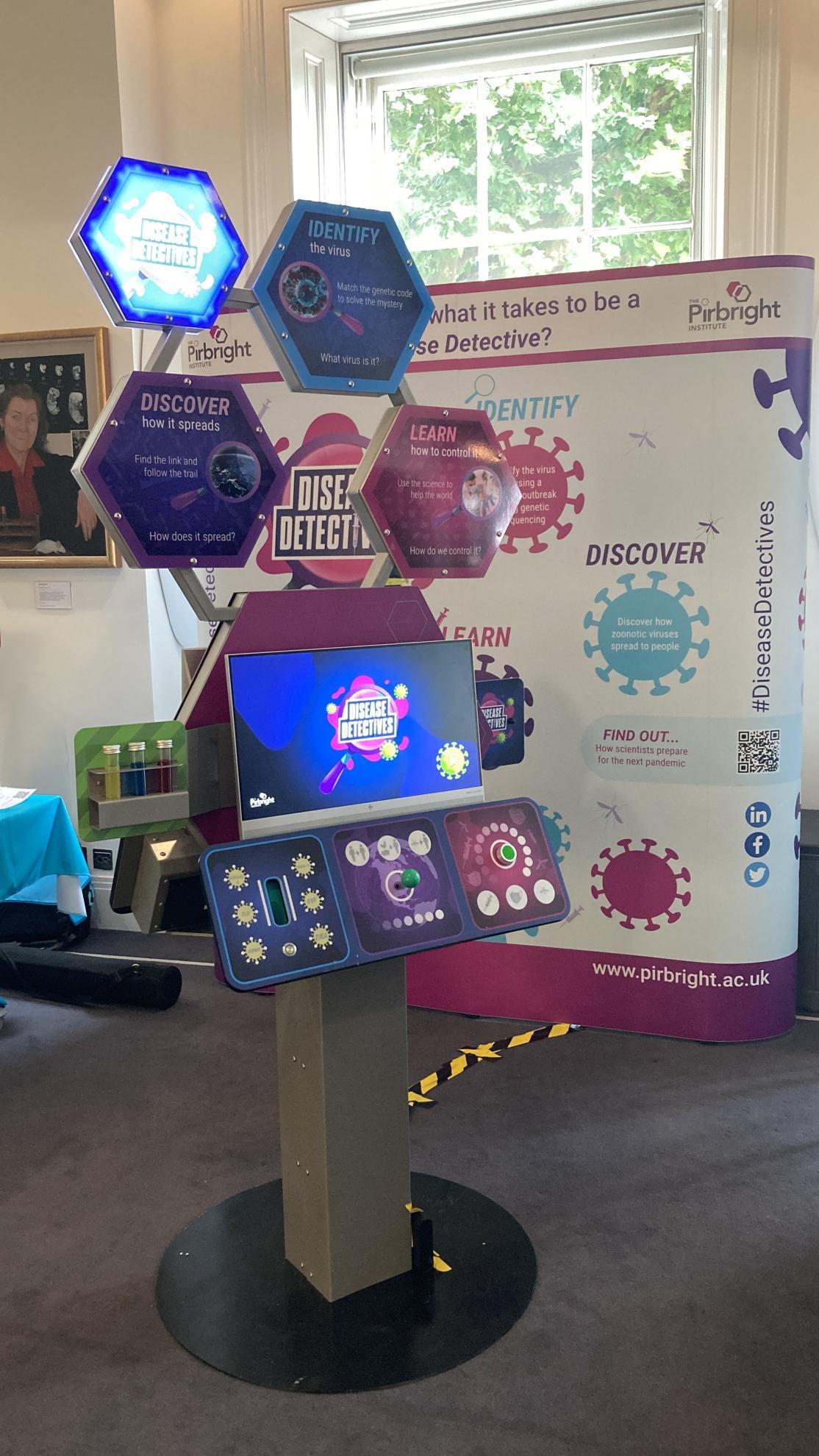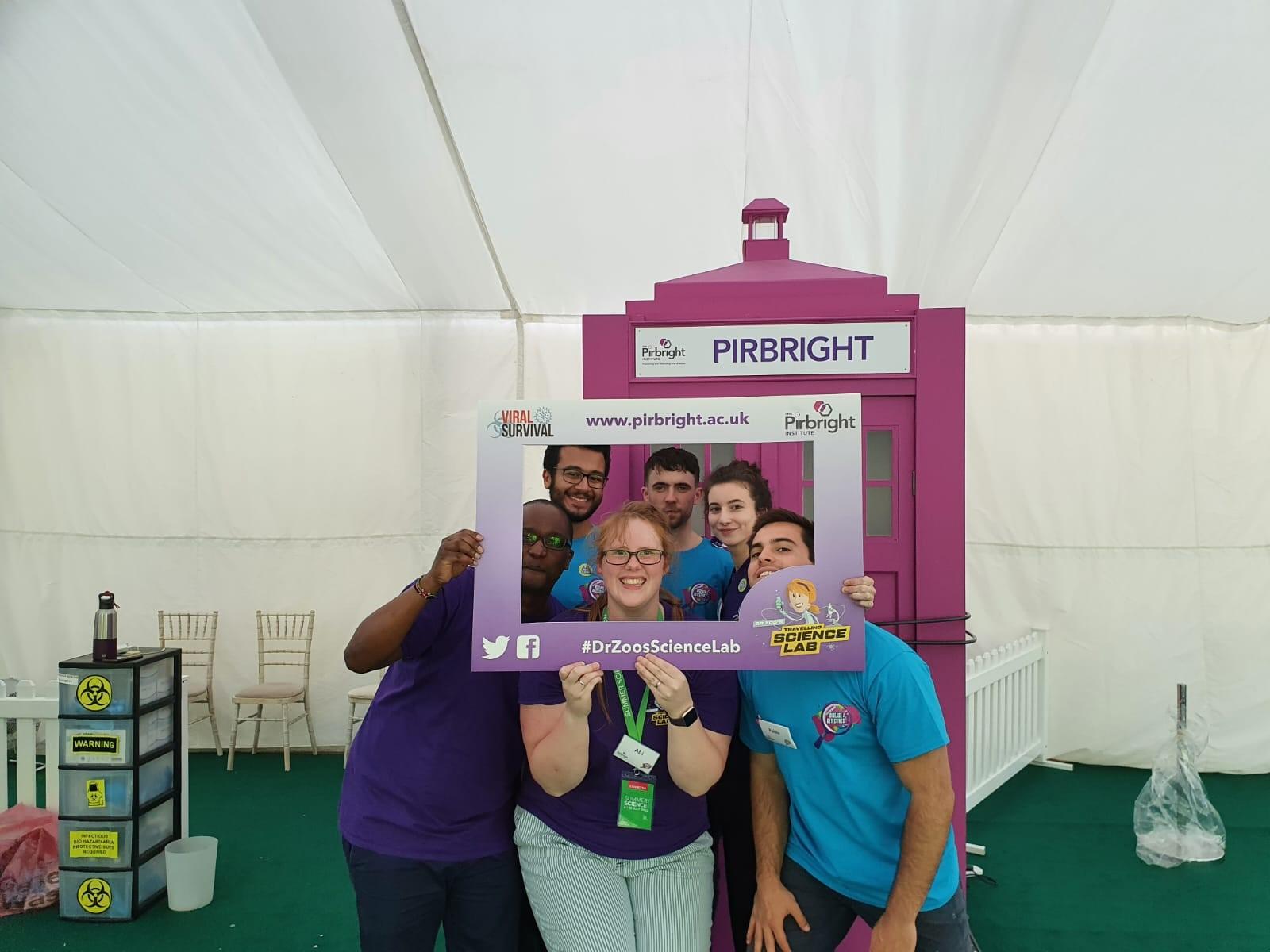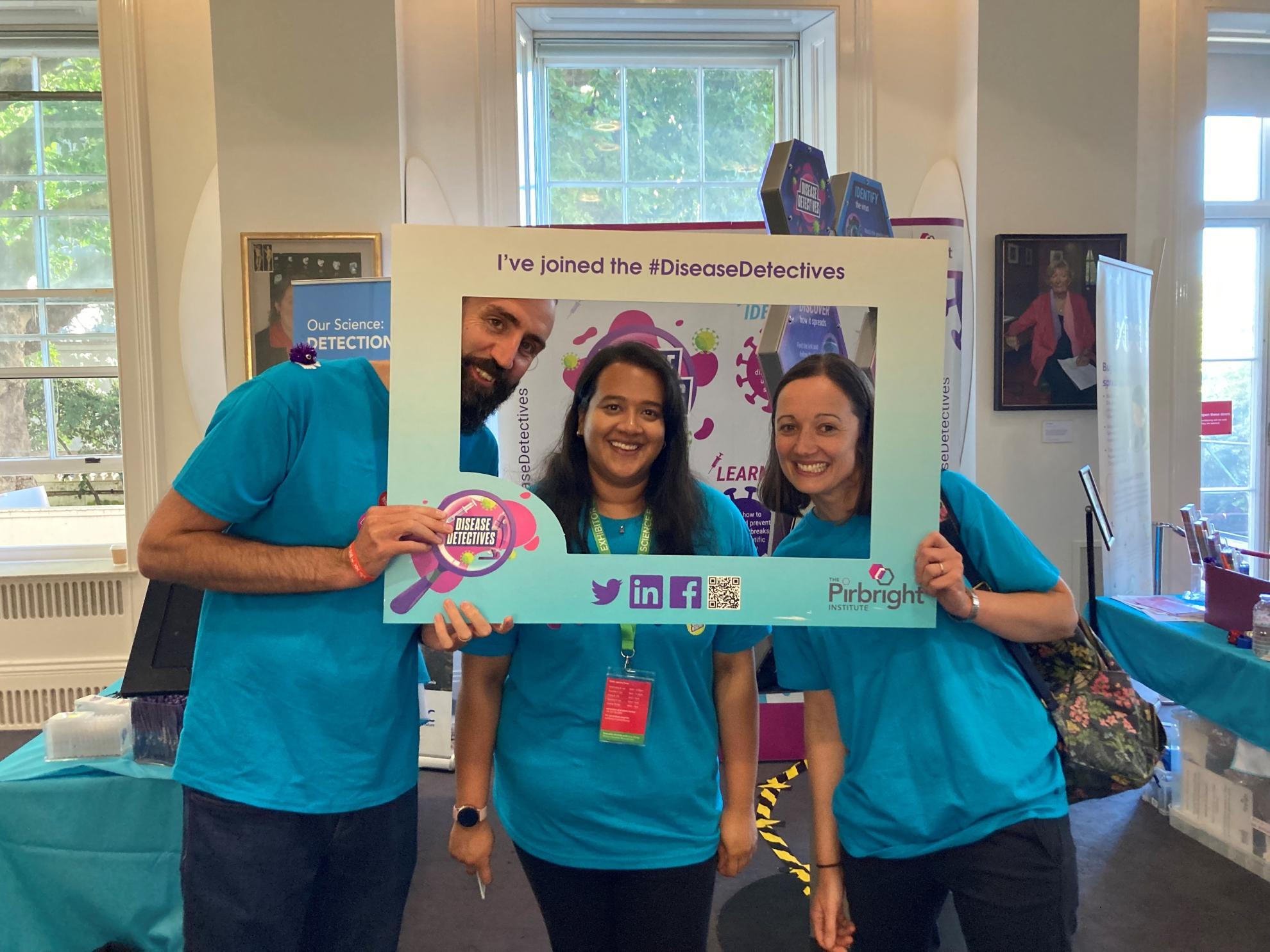
Pirbright was one of just 16 exhibits selected to attend the prestigious Royal Society Summer Science Exhibition 2022 which showcased cutting-edge science for people of all ages.
Pirbright’s exhibit, titled ‘Disease Detectives’ explained what scientists and detectives have in common, and why scientists are key in preventing pandemics. Centring around the World Health Organization’s list of priority diseases, which pose the greatest risk to public health, the exhibit featured viruses studied at the Institute such as Nipah, flu, SARS-CoV-2, the virus that causes COVID-19, Zika and Rift Valley fever, along with ‘Disease X’, an as-yet undiscovered virus.
The brand new, fully interactive exhibit, ‘Disease Detectives’, allowed visitors to step into the shoes of a scientist to unravel the mystery of a new disease outbreak. The exhibit was a huge hit with children and adults alike! Using sophisticated, simulated tools like genetic sequencing, mathematical modelling and high-throughput diagnostics, participants could identify viruses and see their structure, discover how they spread and learn how to control them, with the aim of preventing the next pandemic.
The stand also featured ‘Bug Busters’, a simple yet effective way to demonstrate how genetic engineering can be used to prevent the spread of vector-borne diseases like Rift Valley fever, dengue and Zika. Visitors were able to build LEGO mosquitoes and then follow instructions to rebuild the bugs with changes that visualise the genetic modification that can be employed to prevent the spread of disease.
The ever-popular Dr Zoo’s Travelling Science Lab, a mini escape room fashioned as a bright pink Tardis, wowed weekend visitors with families queuing to join the fun and to escape a deadly virus. Visitors took on the role of one of Dr Zoo’s laboratory assistants and used their scientific know-how to crack codes and unravel the clues in under five minutes. Participants competed against the clock and each other for the fastest escape time to become top of the daily leader board.

Professor John Hammond, Head of the Immunogenetics and Bioinformatics, Sequencing and Proteomics groups said: “It was a privilege to be selected for the Royal Society Summer Science Exhibition this year. This event showcased the knowledge and expertise of many of our scientists and was an excellent platform to share our research with people of all ages. It is important for the Institute to engage with the public at events such as these as so that we can highlight the importance of the work we do in preventing and controlling viral diseases.”
Thank you to the Medical Research Council (MRC) for contributing £5,000 of funding towards our exhibit.
